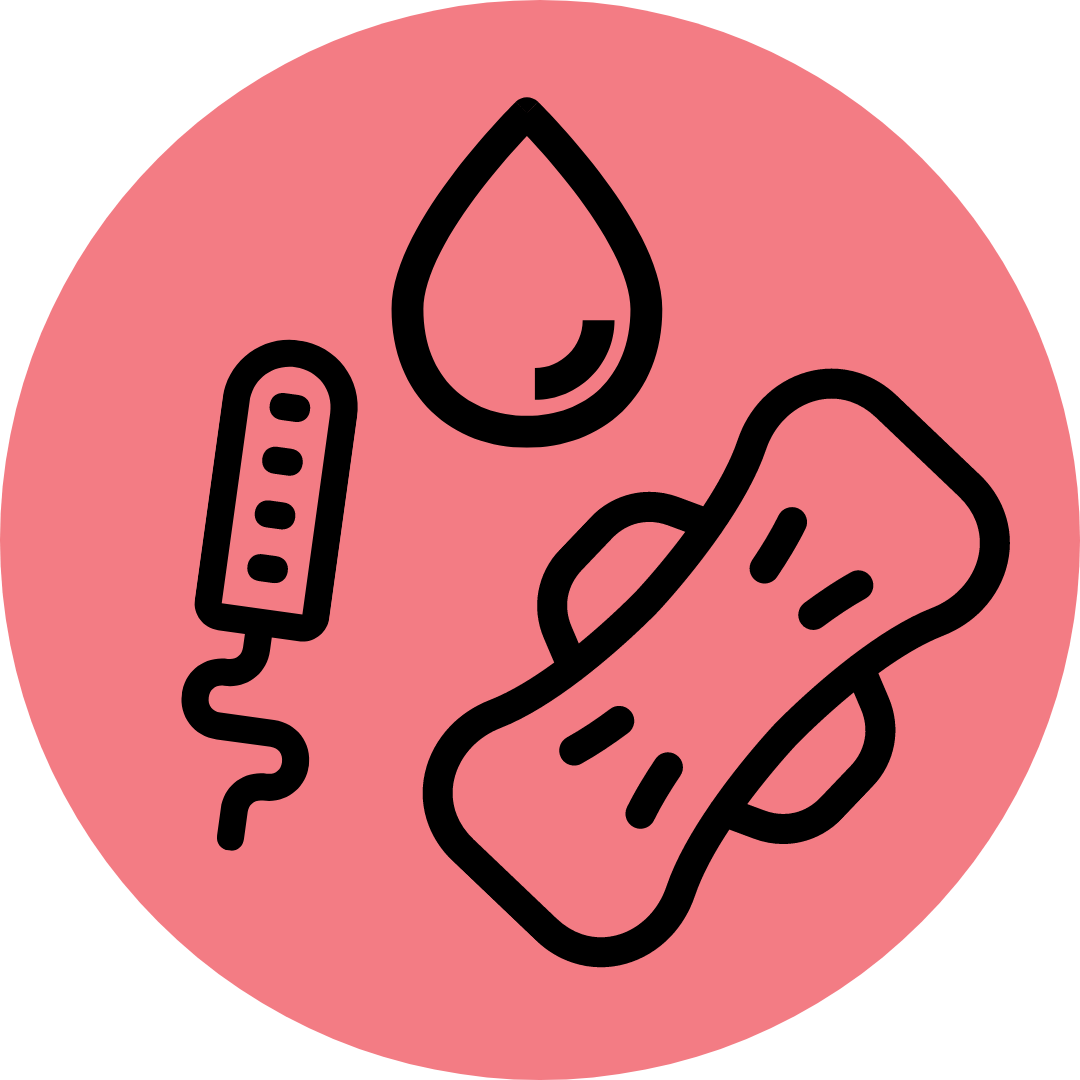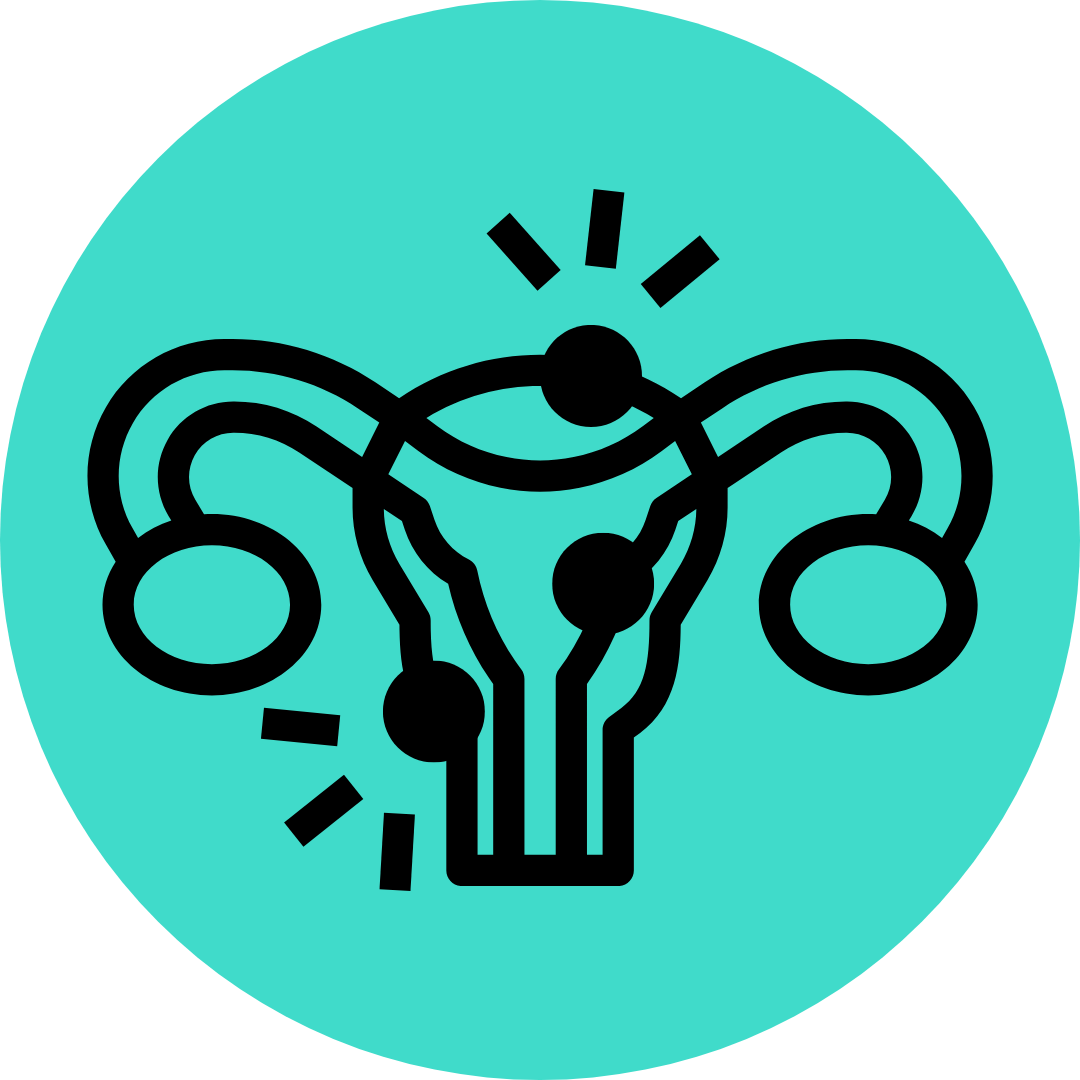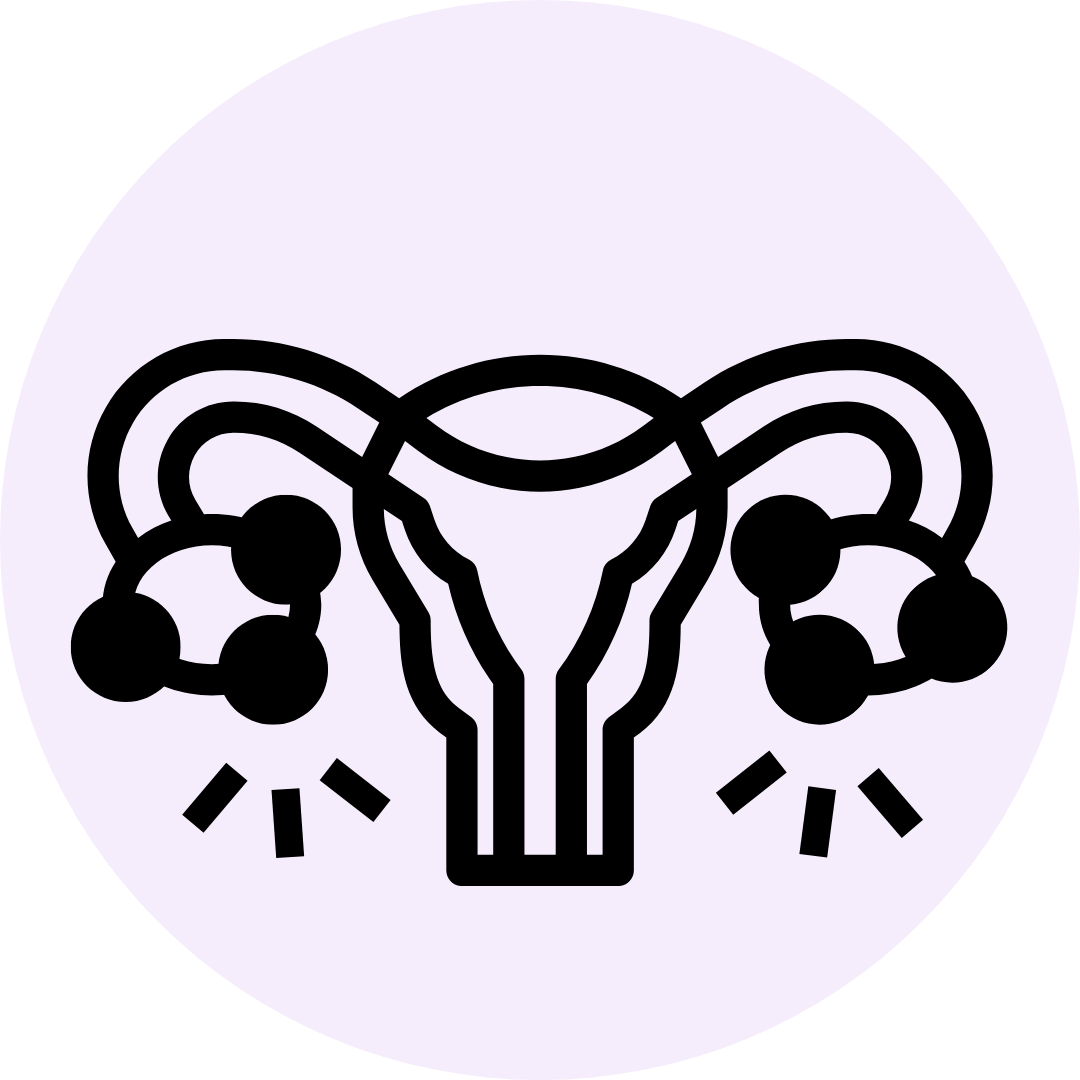Endometriosis

Endometriosis is a chronic inflammatory condition, where endometrial-like tissue grows outside the uterus.
In Australia, it affects 11.4% of people with a uterus. It can be a long-term condition, and 95% of people will need a surgical procedure. Diagnosis is often delayed by 5 or more years; this delay can cause increased symptoms, distress, and severity of disease.
What are the symptoms of endometriosis?
- Persistent pelvic pain
- Period pain (dysmenorrhoea)
- Deep pain during or after sex (dyspareunia)
- Period related gastrointestinal (GIT) pain, bowel pain and/or urinary pain
- Infertility
Endometriosis is usually a long-term condition, and almost all people with endometriosis will have period pain and chronic pelvic pain. Endometriosis can affect you physically, sexually, psychosocially, and emotionally.
What can I do if I have symptoms of endometriosis?
Specialist care is available for people with suspected or confirmed endometriosis. See your GP, Sexual and Reproductive Health service, or Women’s Health service if you have symptoms of endometriosis. They can refer you to a specialist clinical team, which could include a gynaecologist, specialist nurse, pain management team, women’s imaging service, and fertility specialist.
What will happen when I have an appointment?
The doctor or nurse will feel your abdomen to check for any masses, pain, and any enlarged internal organs. Sometimes they will want to do a vaginal examination. You will be asked to keep a diary of your pain symptoms.
How is endometriosis treated?
There are several ways to treat endometriosis. Decisions for your treatment will depend on what works for you. These treatments include:
- Pain relief
After discussing pain with your clinician, a daily combination of non-steroidal anti-inflammatory (NSAIDS) and Panadol can be taken for 3 months to see if there is any improvement. If it is not effective, you can be referred to a pain specialist. There is no evidence for or against the use of neuropathic medication. Stronger analgesia has side effects and is not recommended for chronic pain management. - Surgery
Your doctor can refer you to see a gynaecologist for surgery. This is usually done using a technique called a laparoscopy. It is minimally invasive with good recovery. The aim is to remove any endometrial deposits and correct any alteration of normal anatomy. This includes removal of adhesions (fibrous bands that form between tissue) and scar tissue. Surgery is performed by excision (cutting out) or ablation (destroying or vaporising). For extensive surgery that involves the bowel or bladder, a Colorectal Surgeon and Urologist may be needed.
Endometriosis re-occurs in 40 – 45% of people. 30% of people need surgery again within 5 years and 25% of people need 3 or more surgeries. - Hormonal treatment
The aim of hormonal treatment is to control estrogen, as endometriosis is an estrogen dependent condition. Hormonal treatments can slow the development of endometriosis and stop bleeding, including menstruation (periods). These include:- Combined oral contraceptive pills (OCPs) or progesterone-only ‘mini’ pills (POPs)
- Contraceptive injections
- Contraceptive implants
- Intra-Uterine devices (IUD) such as Mirena and Kyleena
- For severe disease, gonadotropin releasing hormone (GnRH) agonist and antagonist can be used for 3 months prior to surgery.
- Complimentary therapies
There are many different therapies that can be used in combination with medical treatment of endometriosis. This is a choice that you can make with your specialist team, depending on what works best for you.- Psychology including Cognitive Behavioural Therapy (CBT), Relaxation, Pain psychology, Hypnosis, or Psychosexual therapy
- Physiotherapy, including Biofeedback or Transcutaneous electrical nerve stimulation (TENS)
- Other therapies including Osteopathy, Acupuncture, Chiropractic, Reflexology, and Massage






